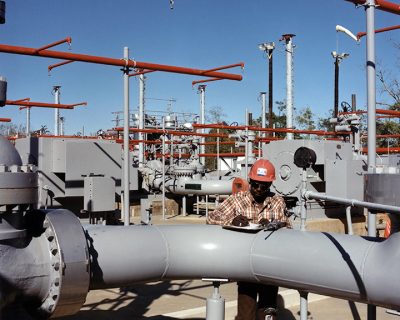
Massachusetts Gov. Charlie Baker and Lt. Gov. Karyn Polito announced in a press release Nov. 21 that the Commonwealth will implement a Pipeline Safety Management System including safety measures for the inspection and improvement of the state’s natural gas lines.
Massachusetts will be the first state to fully commit to the American Petroleum Institute’s Recommended Practice 1173, which was developed after multiple natural gas disasters to improve pipeline safety.
The state’s Department of Public Utilities (DPU) asked local gas companies to adopt these safety measures Sept. 13 after gas line explosions in Merrimack Valley. The DPU issued a final order Sept. 28 to improve gas line infrastructure and accountability.
The Merrimack Valley explosions resulted in one death and over 25 injuries. Ed McCabe, 70, of Woburn, said he thinks that there should have been more oversight of the gas lines in the area.
“They weren’t supervising it properly,” McCabe said. “The people who were doing it weren’t trained in that particular task. And that’s where they had the pressure buildup and eventually the surge of the explosion.”
Evelyn Morano, 24, of Brighton, said she thinks the explosions will have long-term effects on the lives of its victims.
“There absolutely should have been more oversight,” Morano said. “I feel like this is a huge deal. This is people’s lives and their homes, and for it to be impacted in this way is just really sad.”
Baker said in the press release that his administration is looking forward to working with the Northeast Gas Association (NGA), a trade group that focuses on natural gas awareness in the United States, to ensure the safety of Massachusetts residents and that the best oversight practices are in place.
“Our administration is pleased that the Northeast Gas Association has complied with the DPU’s request to adopt the nation’s first statewide Pipeline Safety Management System to ensure the safety of our communities,” Baker said.
The new pipe management system is backed by the National Transportation Safety Board and the Pipeline and Hazardous Materials Safety Administration. The system will allow for a continuous approach to safety management instead of simply consisting of a set of rules, according to the release.
Stephen Leahy, vice president of policy and analysis for the NGA, wrote in an email that the association released a Request for Proposal to ask for guidance from its members to create a new safety system.
“We just issued an RFP for consulting assistance, to provide guidance for the utilities in developing this new system and what it will mean for gas utility processes in the Commonwealth,” Leahy wrote.
DPU chair Angela O’Connor said that her department is looking forward to working with gas companies to examine current gas safety protocols.
“One of the goals of adopting the Safety Management System is to change the culture of safety by moving away from being reactive and becoming proactive and predictive on safety issues,” O’Connor said in the release from Baker’s office.
The Baker-Polito Administration has also created legislation that would require natural gas work to be approved by a licensed professional engineer.
Joe Tulip, 22, of Jamaica Plain, said he is glad there will be new safety measures put in place and that he hopes that other states follow in the Bay State’s wake.
“Massachusetts does everything first,” Tulip said. “They did the Affordable Care Act first. So it’s just like this really. They know that there’s a need for things, and they tend to fill it and then, nationally, we catch up.”
Sophie Falkenheim contributed to the reporting of this article.


















































































































